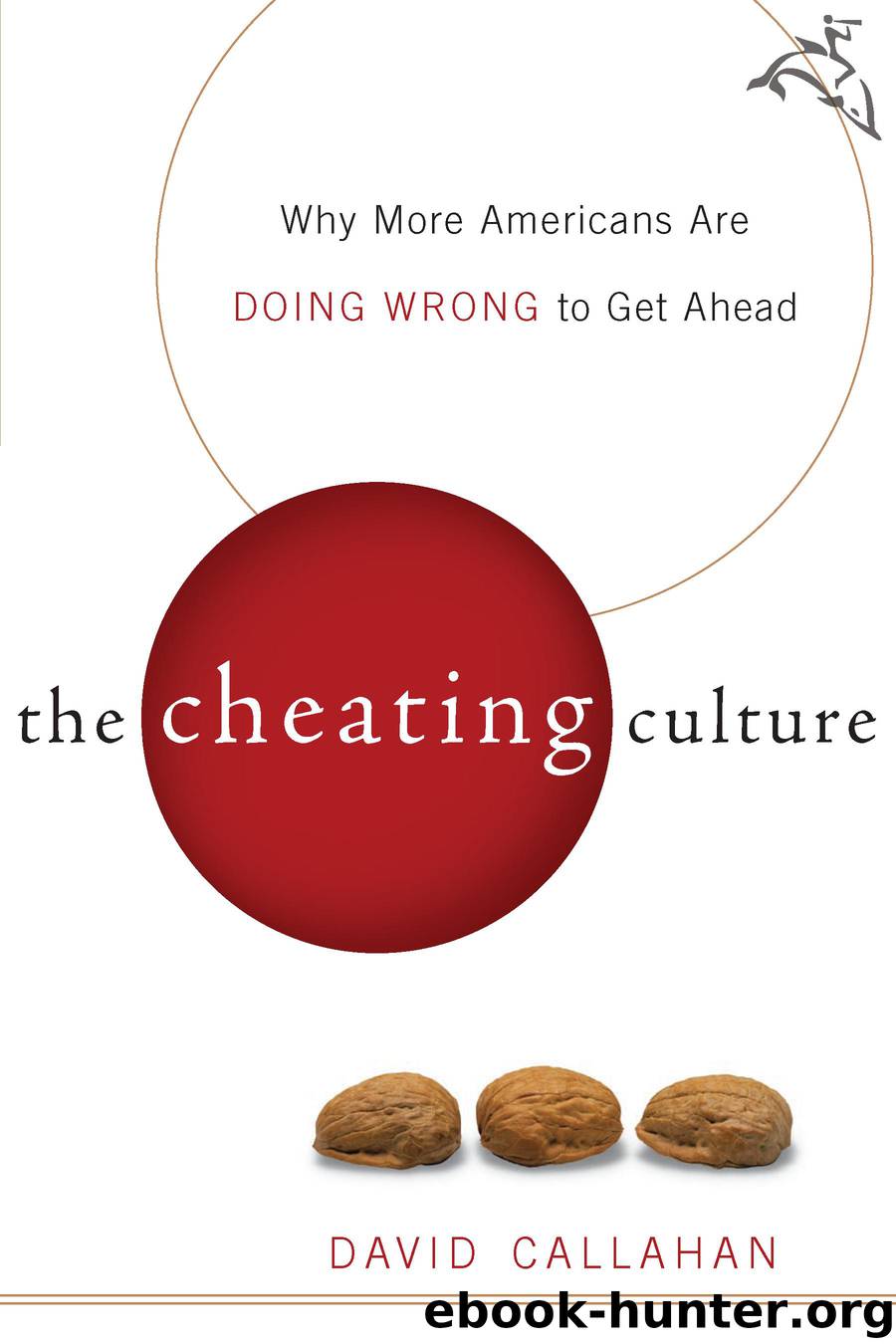The Cheating Culture by David Callahan

Author:David Callahan
Language: eng
Format: epub
Published: 2019-04-08T16:00:00+00:00
T HE WHITE-SHOE CORPORATE law firms of Manhattan wouldn’t seem to bear even a passing resemblance to Sears auto repair centers. These firms operate in a rarefied strata of money and power—managing the legal affairs of some of America’s largest companies. They are filled with well-compensated professionals bound by oath to abide by a rigorous code of ethics. And yet life at such firms often entails an ongoing clash between integrity and economic well-being not unlike what occurred in the Sears auto centers. Ordinary people are subjected to intense pressure and high financial stakes—all the while enjoying the option to cheat. And how do many lawyers behave under these circumstances? Not any better than the Sears auto mechanics did.
“Ordinary people” is admittedly not the best description of lawyers at top corporate law firms like Cravath, Swaine & Moore, or White & Case, or Skadden, Arps. Yet the term is not as off the mark as one might think. A few decades ago, the young lawyers who joined such firms every year as new associates were almost exclusively white men from privileged backgrounds. This is not the case today. Most of these firms recruit for talent, with an eye toward diversity, and they have plenty of choices—legions of people graduate from law school every year. Many of the very best of these grads come from middle-class or immigrant families; nearly half of the grads are women and a fifth are minorities.
Despite the knocks that law has taken in recent years, it is still viewed as a reliable path to the Winning Class. The field is also remarkably meritocratic compared to the past. To have a shot at entrance to the best law schools—and thereafter the top law firms and serious money as a lawyer—all a college grad needs are excellent grades, very high LSAT scores, and a willingness to incur huge student debts. Thousands of hardworking young people from a variety of backgrounds meet these requirements, and the entering crop of first-year associates at many top law firms today pulls from a broad cross section of America.
To be a young law associate at a white-shoe New York firm is both a great privilege and a grueling experience. Associates enter a world of dramatic disparities in pay and power, and they are subjected to incredible stress. First-year associates start with a pay package that seems impressive: $125,000 a year and a signing bonus as high as $40,000. This pay becomes less impressive when one considers that associates can spend up to eighty hours a week in the office, the average one-bedroom apartment in New York City costs about $2,200 a month, and the typical law school grad is carrying over $80,000 in student loans. The entry-level pay is not why people join the corporate law world. They join with the hope that someday they will be able to make partner. The average partner at Cravath took home nearly $2 million in bonus pay in 2002. Partners at Wachtell, Lipton, Rosen & Katz took home even bigger bonuses.
Download
This site does not store any files on its server. We only index and link to content provided by other sites. Please contact the content providers to delete copyright contents if any and email us, we'll remove relevant links or contents immediately.
The Secret History by Donna Tartt(16623)
The Social Justice Warrior Handbook by Lisa De Pasquale(11489)
Thirteen Reasons Why by Jay Asher(7788)
This Is How You Lose Her by Junot Diaz(5772)
Weapons of Math Destruction by Cathy O'Neil(5037)
Zero to One by Peter Thiel(4824)
The Myth of the Strong Leader by Archie Brown(4789)
Promise Me, Dad by Joe Biden(4447)
Beartown by Fredrik Backman(4419)
Stone's Rules by Roger Stone(4415)
How Democracies Die by Steven Levitsky & Daniel Ziblatt(4399)
The Fire Next Time by James Baldwin(4343)
100 Deadly Skills by Clint Emerson(4078)
A Higher Loyalty: Truth, Lies, and Leadership by James Comey(4033)
Rise and Kill First by Ronen Bergman(4012)
The David Icke Guide to the Global Conspiracy (and how to end it) by David Icke(3882)
The Farm by Tom Rob Smith(3872)
Secrecy World by Jake Bernstein(3782)
The Doomsday Machine by Daniel Ellsberg(3731)
